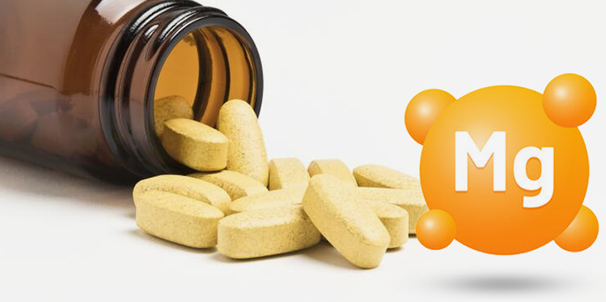Unlock the Power of this Superstar Nutrient in Your Body!
Category: Healthy Nutrition

Our bodies need essential nutrients to thrive, and deficiencies can sometimes occur, affecting our overall health.
While the most common nutrient deficiencies can vary depending on factors such as age, overall health, diet, and lifestyle, there are a few key ones that are commonly found to be deficient or at low levels in men.
- Vitamin D
- Magnesium
- Vitamin B-12
- Omega-3 Fatty Acids
- Calcium
- Zinc
Let’s zoom in on one of the most important essential minerals in human health, magnesium. Magnesium is like a superstar nutrient involved in many functions in the body.
But guess what? Much of the U.S. population is deficient in magnesium. In fact, an analysis of the U.S. national nutrition survey data (NHANES 2003-2006) suggests that about one-half of the adult population may be at risk of magnesium inadequacy. Conequently, since magnesium is an essential cofactor for hundreds of enzymes, a deficiency can result in various health issues, from cardiovascular disease and hypertension to osteoporosis and migraine headaches.
Magnesium is found in a variety of nutrient-dense foods. Since magnesium is part of chlorophyll, the green pigment in plants, green leafy vegetables (such as kale, spinach, collard greens, and mustard greens), are good sources of magnesium.
However, most people do not eat enough leafy greens in their diet. The Standard American Diet (SAD) is mostly made up of highly processed foods with low levels of green leafy vegetables, whole grains and nuts, and other magnesium-rich foods. Some types of food processing, such as refining grains in ways that remove the nutrient-rich germ and bran, lower magnesium content substantially. As a result, Americans do not get enough magnesium in their diet.
But here’s the good news: If you’re struggling to get enough in your diet, you can get a very affordable magnesium supplement.

A good quality, scientifically formulated multivitamin and mineral supplement can be a good source of magnesium. But if you want a good amount of magnesium, you may want to go for a specific magnesium supplement.
When searching for a quality magnesium supplement, look for one that includes elemental magnesium from at least three different bioavailable sources, such as magnesium oxide, magnesium citrate, and magnesium gluconate. And here’s a nifty tip: Find one with added potassium. It’s like a boost for your nerves and muscles.
A good magnesium supplement also contains boron, as it aids magnesium in bone metabolism and utilization. If you have problems digesting supplements, choose one that utilizes a gel-diffusion delivery system in the tablet that is easy on the digestive system. You can look for that on the label. Visit my Wellness Center to see the magnesium supplement I recommend that meets all these requirements!
Magnesium is a mineral often overlooked for its benefits for your health. To ensure you reach optimal levels, eat more foods that are good sources of magnesium and complement your diet with a quality magnesium supplement.
Finally, in the following video, Dr. John Westerdahl provides an awesome, info-packed presentation on the power of magnesium. You can find this video in the wellness center, or by clicking on the link below..
Please reach out to me with your questions or comments at Jerry@Fit4LifeLLC.com.




Facebook Comments